Medical Marijuana and Mental Health: Can Cannabis Help with Anxiety and PTSD?
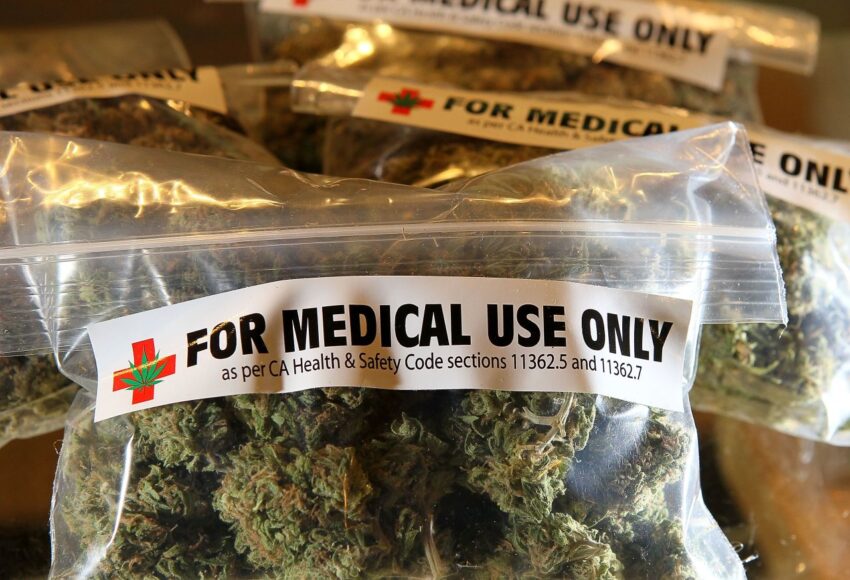
Introduction
Mental health disorders such as anxiety and PTSD (post-traumatic stress disorder) affect millions worldwide, often impacting daily life, work, and relationships. While conventional treatments like therapy and medications remain the standard, medical marijuana is emerging as a potential complementary option. Patients and healthcare providers are increasingly interested in its ability to reduce symptoms while exploring safe, regulated use.
This article delves into how cannabis interacts with the human body, its therapeutic potential for mental health, and important legal and medical considerations for those considering it as a treatment option.
What Is Medical Marijuana?
Medical marijuana refers to the use of cannabis plants or extracts for therapeutic purposes. Unlike recreational cannabis, which is consumed for its psychoactive effects, medical marijuana is prescribed and regulated to treat specific medical conditions.
Origins and Prescription
Historically, cannabis has been used medicinally for thousands of years. Modern medical marijuana products are standardized, allowing healthcare providers to prescribe specific doses of THC, CBD, or a combination tailored to the patient’s needs. Prescription regulations vary by region, making it critical to understand local laws before use.
See more: Brisbane Sleep Study Clinics You Can Trust
How Cannabis Works in the Human Body
The endocannabinoid system (ECS) is central to understanding how cannabis affects mental health. The ECS consists of receptors throughout the brain and body that help regulate mood, stress response, and emotional balance.
- THC binds directly to CB1 receptors in the brain, influencing mood, memory, and stress responses.
- CBD interacts indirectly with the ECS, promoting relaxation, reducing inflammation, and modulating neurotransmitter activity without producing a high.
This interaction is what allows medical cannabis to influence symptoms of anxiety and PTSD effectively.
Key Medical Uses and Benefits for Mental Health
Anxiety Disorders
CBD-dominant cannabis has been shown in several studies to reduce anxiety symptoms. Patients report feeling calmer, experiencing fewer panic attacks, and having improved sleep patterns. THC can also help in small, controlled doses but may increase anxiety in high amounts.
Post-Traumatic Stress Disorder (PTSD)
PTSD often involves hyperarousal, flashbacks, and disrupted sleep. Cannabis can help manage these symptoms by calming overactive stress pathways in the brain and reducing insomnia, allowing patients to engage more effectively in therapy.
Supporting Conventional Treatments
Medical marijuana can complement other therapies such as cognitive behavioral therapy (CBT) or antidepressants. Studies suggest it may reduce dependence on medications with heavier side effects while enhancing overall symptom management.
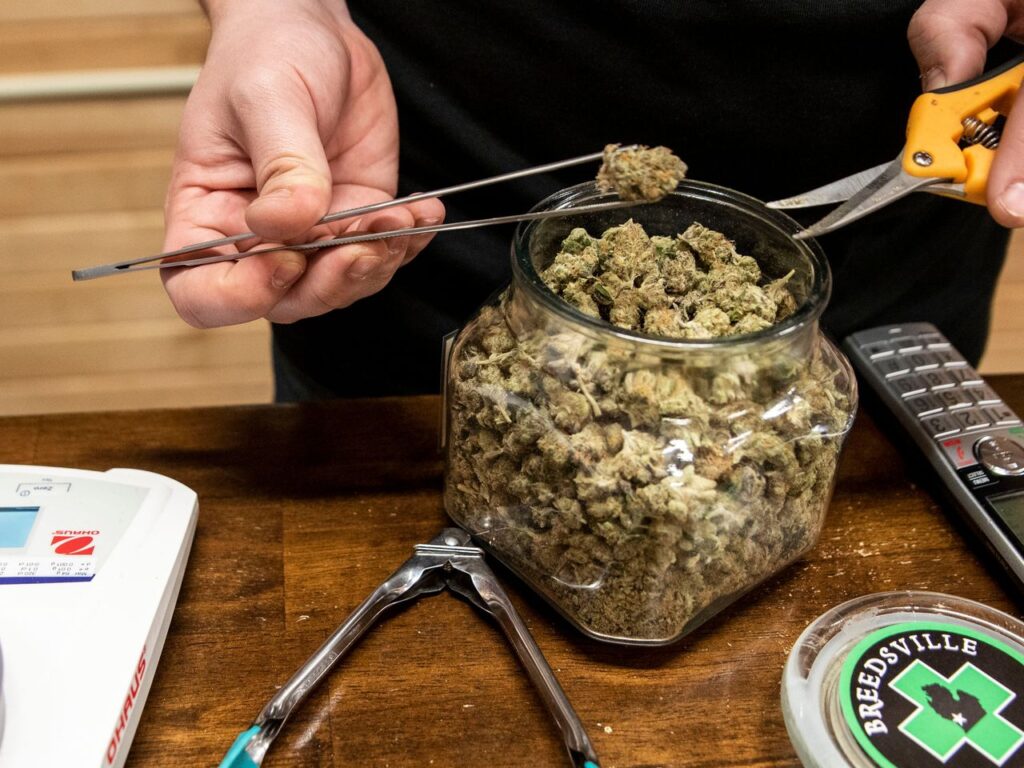
The Role of Cannabinoids: CBD and THC
Understanding the differences between CBD and THC is crucial for mental health treatment:
| Feature | CBD | THC |
|---|---|---|
| Psychoactive | No | Yes |
| Mental Health Effects | Reduces anxiety, promotes calm | Can reduce stress but may cause euphoria or paranoia if overused |
| Safety Profile | Mild fatigue or dry mouth | Dizziness, increased heart rate, impaired coordination |
Most medical professionals recommend starting with CBD-rich formulations and introducing THC cautiously if clinically appropriate.
Medical Marijuana in Modern Treatments (Real-World Examples)
United States
Medical cannabis is approved for PTSD in several states, with licensed dispensaries offering cannabinoid-specific products. Veterans’ health programs have integrated cannabis-based therapies into symptom management plans.
Canada
Cannabis is federally legal for medical purposes. Clinics provide personalized guidance for patients with anxiety, PTSD, and other mental health conditions, emphasizing dosage, delivery methods, and monitoring.
Australia
Through the Special Access Scheme, patients with anxiety or PTSD can legally access prescribed cannabis. Researchers are studying the efficacy of CBD and THC combinations for long-term mental health support.
Legal and Ethical Considerations
Patients must navigate a complex legal landscape:
- Prescription requirements differ by country or state.
- Possession limits and approved forms (oils, capsules, vaporizers) are strictly regulated.
- Ethical concerns include ensuring access without encouraging misuse, especially among younger populations or those with a history of substance abuse.
Healthcare providers play a critical role in balancing accessibility with patient safety.
Potential Risks and Side Effects
Medical cannabis is generally well-tolerated but comes with potential risks:
- Short-term: Drowsiness, dizziness, changes in appetite, dry mouth
- Psychological: THC can trigger anxiety or paranoia in sensitive individuals
- Dependency: Rare, but caution is advised with prolonged use
Responsible medical supervision, starting with low doses and gradual adjustments, is essential to minimize risks.
The Future of Cannabis in Mental Health
Research on medical marijuana for anxiety and PTSD is expanding. Ongoing studies aim to:
- Identify optimal cannabinoid ratios for different mental health conditions
- Explore personalized treatment plans using CBD and THC combinations
- Understand long-term effects and potential drug interactions
As public acceptance grows and regulations adapt, medical cannabis may become a widely recognized tool for mental health management.
Conclusion
Medical marijuana offers promising benefits for patients struggling with anxiety and PTSD. While not a cure, it can provide symptom relief and complement traditional therapies. Patients must work closely with licensed healthcare providers, adhere to legal guidelines, and use cannabis responsibly. With careful guidance, medical marijuana can be an effective component of a holistic mental health treatment plan.
FAQS
Yes, especially CBD-rich formulations. Research shows patients often experience reduced panic attacks, calmer moods, and improved sleep. THC may help in small doses but requires careful supervision to avoid potential anxiety spikes.
Cannabis can help reduce PTSD symptoms such as insomnia, flashbacks, and hyperarousal. Clinical programs in the U.S. and Canada integrate it with therapy to improve patient outcomes.
While dependency is rare, patients should use cannabis under medical guidance, especially THC-rich products. Following prescribed dosages and monitoring effects reduces the risk of misuse.
Patients need a prescription from a licensed healthcare provider. Laws vary by country and state, so it’s essential to verify local regulations and obtain products from approved dispensaries.
Yes, many treatment plans use a combination, with CBD reducing anxiety and THC providing calming effects. Proper dosing and supervision are essential to ensure safety and effectiveness

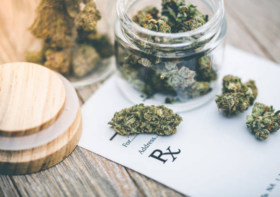
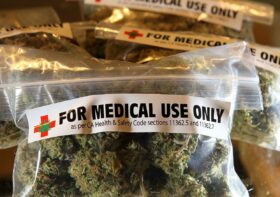
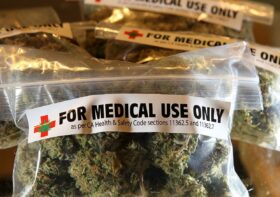
Leave a Reply